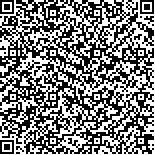| quotation: | | [Copy] |
| | Zhiqiang GAO,Yi HUANG.[en_title][J].Control Theory and Technology,2018,16(4):245~248.[Copy] |
|
| |
|
|
| This Paper:Browse 1648 Download 349 |

码上扫一扫! |
| Editorial |
| ZhiqiangGAO,YiHUANG |
|
|
| (Cleveland State University, Cleveland, Ohio 44115, U.S.A.) |
|
| 摘要: |
| Prof. Jingqing Han left us ten years ago but his ideas not only lived on but also grew evermore powerful, as evident
in this special issue at Control Theory and Technology, in English, and in the special issue at Control Theory and
Applications, in Chinese.
A man of few words, Han was not a person easily understood, even for those close to him. It sometimes took us
years to unpack a single idea of his and unearth a brilliant insight. For the benefits of a broader audience, however,
let’s start with the two basic questions that drove his research:
1) Is the problem of control a problem of stability and optimization, as commonly framed in applied mathematics?
2) If control design cannot be premised on detailed and accurate mathematical model, as declared by H. S. Tsien
(Qian Xuesen) in the groundbreaking book, Engineering Cybernetics, in 1954, then what should or could it be
premised on?
Han’s answer to the first question was a resounding No and its consequence is profound, for it goes against the
reigning paradigm and it implies that the right kind of control theory has yet to come. In conceiving ADRC (active
disturbance rejection control), his sole purpose was to show us an alternative to the reigning paradigm. In essence,
Han solved a problem of control, the existence of which escaped the attention of most scholars in his time. “He was
ahead of his time”, said Prof. Lei Guo, a colleague of his for many years.
The second question is no less disrupting and mystifying: disrupting because its answer has changed the way
control is practiced, as evident in the “application” papers in this issue; mystifying because of the absence of fully
articulated principles and the theoretical foundation. In fact, these two questions arose from the same puzzle left by
Han: if there is an alternative to modern control theory, what does it entail?... |
| 关键词: |
| DOI: |
|
| 基金项目: |
|
| Editorial |
| Zhiqiang GAO,Yi HUANG |
| (Cleveland State University, Cleveland, Ohio 44115, U.S.A.;Academy of Mathematics and Systems Science, Chinese Academy of Sciences, Beijing, China) |
| Abstract: |
| Prof. Jingqing Han left us ten years ago but his ideas not only lived on but also grew evermore powerful, as evident
in this special issue at Control Theory and Technology, in English, and in the special issue at Control Theory and
Applications, in Chinese.
A man of few words, Han was not a person easily understood, even for those close to him. It sometimes took us
years to unpack a single idea of his and unearth a brilliant insight. For the benefits of a broader audience, however,
let’s start with the two basic questions that drove his research:
1) Is the problem of control a problem of stability and optimization, as commonly framed in applied mathematics?
2) If control design cannot be premised on detailed and accurate mathematical model, as declared by H. S. Tsien
(Qian Xuesen) in the groundbreaking book, Engineering Cybernetics, in 1954, then what should or could it be
premised on?
Han’s answer to the first question was a resounding No and its consequence is profound, for it goes against the
reigning paradigm and it implies that the right kind of control theory has yet to come. In conceiving ADRC (active
disturbance rejection control), his sole purpose was to show us an alternative to the reigning paradigm. In essence,
Han solved a problem of control, the existence of which escaped the attention of most scholars in his time. “He was
ahead of his time”, said Prof. Lei Guo, a colleague of his for many years.
The second question is no less disrupting and mystifying: disrupting because its answer has changed the way
control is practiced, as evident in the “application” papers in this issue; mystifying because of the absence of fully
articulated principles and the theoretical foundation. In fact, these two questions arose from the same puzzle left by
Han: if there is an alternative to modern control theory, what does it entail?... |
| Key words: |
|
|

